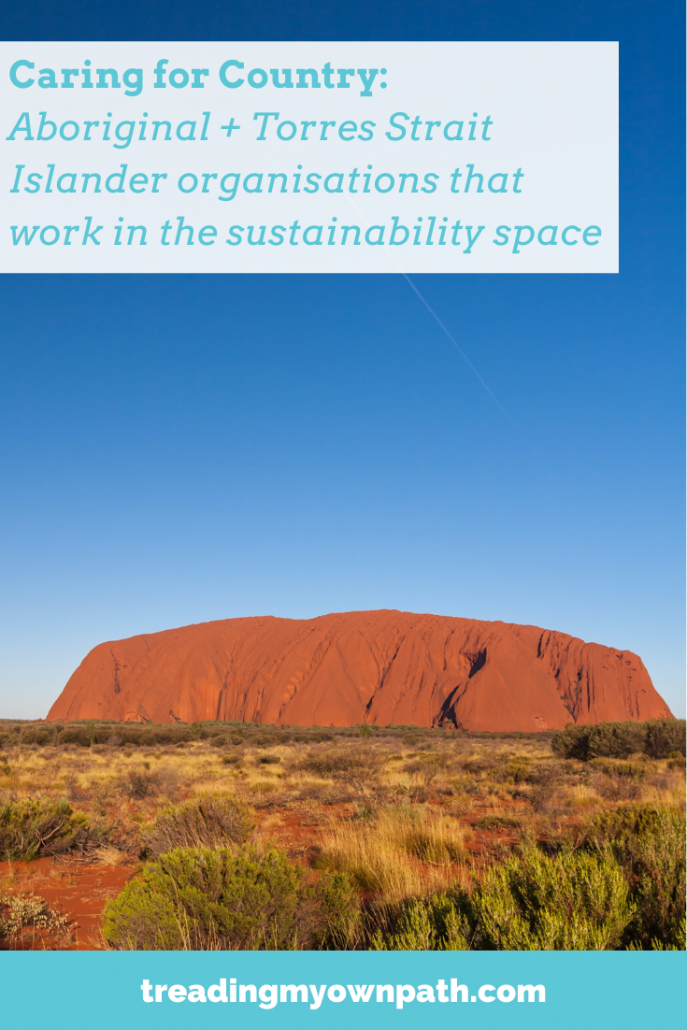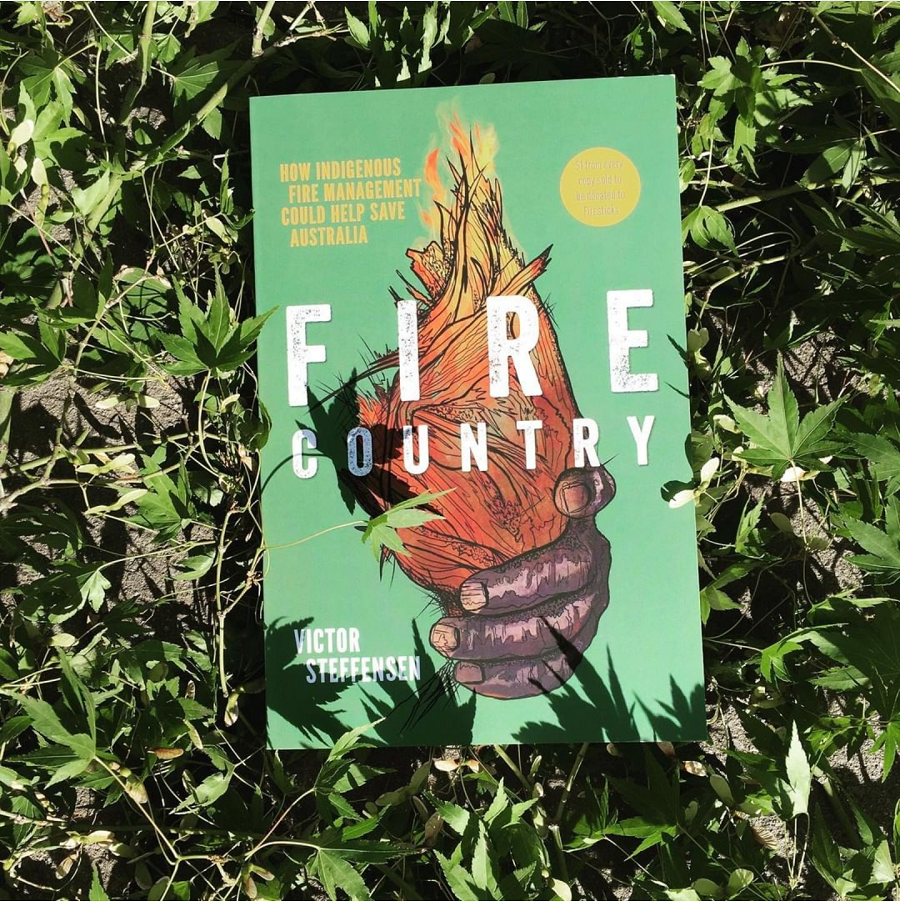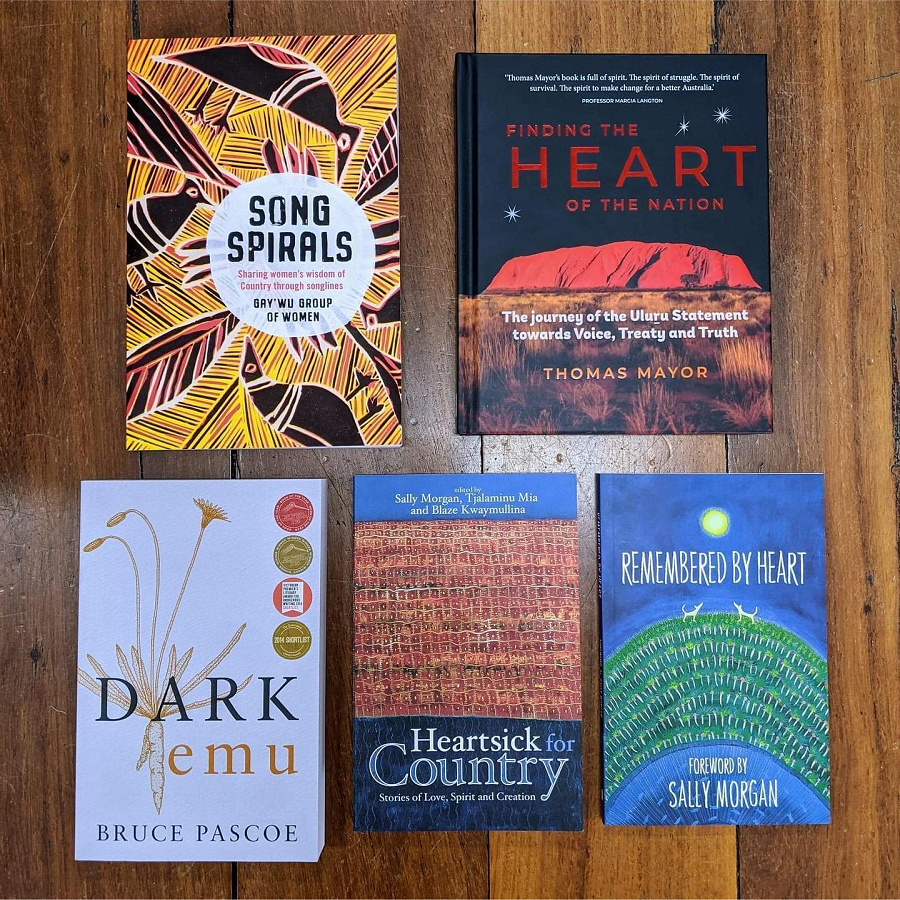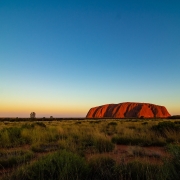Caring for Country: Aboriginal and Torres Strait Islander organisations working in the sustainability space
Something I often think about, when it comes to reducing waste and sustainable living, is ‘what else can I do?’ Not in a fitting-my-trash-in-a-mason-jar kind of way – I find this way too simplistic and too focused on the individual at the expense of the broader community.
If I can fit my waste in a jam jar but the rest of my street (or suburb, or town, or country) are filling their bins to the top each week, that’s not really a reason to celebrate. Clearly there is still work to be done!
To me, ‘what else can I do’ means thinking about how can I spread the message, influence my friends, family and those in my community, and help others to take action.
The place where it’s easiest for me to take action, outside of my own home, is in my local community. But – thinking about the jam jar analogy again – it’s a hollow victory if my community does a fantastic job, whilst other communities are struggling, and don’t have access to the resources to create change.
The good news is, there are plenty of people working in their local communities to create positive change. Those of us with more resources can offer support to those with less.
We don’t need to live in or travel to those communities to support them and assist them to do their work.
Aboriginal and Torres Strait Islander people have lived sustainably on the land that is now called Australia for 60,000 years, and they have knowledge and experience of caring for Country that 250 years of white occupation can’t even begin to comprehend.
If we want to live sustainably, we have to listen to the voices of Indigenous peoples, trust their knowledge, and learn from their experiences.
In Australia, there are a number of Aboriginal and Torres Strait Islander organisations focused on sustainability, and sharing knowledge and stories in their own voices. If you’re wondering how you can support Indigenous voices and experiences in this space, I’ve put together a list of the ones I know about – you might find it useful.
Support might mean sharing their work, making a donation, volunteering time, making a purchase, asking your local library or school to stock a book, or something else.
(I have no doubt that this list is incomplete, and if you know of any other Indigenous-owned or Indigenous-led organisations working in this space in Australia, let me know and I will add them to the list.)

Aboriginal / Torres Strait Islander led organisations working in the sustainability space
Seed Indigenous Youth Climate Network
A branch of the Australian Youth Climate Coalition (AYCC), Seed is Australia’s first Indigenous youth climate network. Their vision is for a just and sustainable future with strong cultures and communities, powered by renewable energy. Climate change is one of the greatest threats facing humanity, and it is also an opportunity to create a more just and sustainable world.
Firesticks
Firesticks Alliance Indigenous Corporation is an Indigenous-led network and aims to re-invigorate the use of cultural burning by facilitating cultural learning pathways to fire and land management. It is an initiative for Indigenous and non- Indigenous people to look after Country, share their experiences and collectively explore ways to achieve their goals.

Victor Steffensen is a co-founder of the Firesticks Alliance Indigenous Corporation, and sits on the Board of Directors. His book, Fire Country – how Indigenous fire management could help save Australia was published in February 2020. $1 from each purchase goes to the Firesticks Alliance.
Community First Development (formerly Indigenous Community Volunteers)
Working with First Nations communities is based on the principle of self-determination; creating partnerships with them so that they can achieve great things for their communities. Projects are always determined and led by community. Driven by the need for a better world for all First Nations people; to work with all cultures for recognition, respect, and the right to be treated and valued with equality.
W: communityfirstvolunteers.org.au
Deadly Science
An initiative that aims to provide science books and easy reading material to remote schools in Australia. (It is also helping restocking books and resources to schools destroyed in the 2020 bush fires). It was started when founder Corey Tutt, a Kamilaroi man who is the 2020 NSW Young Australian of the Year, discovered that an Australian school he was talking to had just 15 books in their entire library.
Common Ground
Founded by Kaytetye woman Rona Glynn-McDonald to build a foundational level of knowledge for all Australians, and be a go to resource for those wanting to learn more and connect with our First Peoples. To help Australians see the value of Aboriginal and Torres Strait Islander cultures through providing access to engaging and authentic content that will help bridge gaps in knowledge.
First Nations publishing houses – publishing Aboriginal and Torres Strait Islander stories and voices
Magaala books (based in Broome, WA)
They published the award-winning Dark Emu by Bruce Pascoe, which looks at the historical evidence to challenge the commonly-held views of pre-colonial Australia and “Terra Nullius”.
W: magabala.com
Keeaira press
Established in 1996 with the purpose of recording Aboriginal history and culture.
Black Inc Press (Condon, QLD)
An Indigenous community-based publishing venture based in North Queensland, and specialising in illustrated books for young readers.
W: blackinkpress.wixsite.com/blackinkpress
Aboriginal Studies press
Publishing arm of the Australian Institute of Aboriginal and Torres Strait Islander Studies (AIATSIS) and publisher of Australian Indigenous studies. They publish scholarly works, children’s books, biographies, research papers and monographs across a broad range of topics.
W: aiatsis.gov.au/aboriginal-studies-press
Indij readers (Fountaindale, NSW)
An Aboriginal charity registered as a not-for-profit organisation, selling Indigenous children’s books.
Batchelor press (NT)
The publishing arm of Batchelor Institute of Indigenous Tertiary Education, Northern Territory, Australia. The teaching and learning resources are produced primarily for Indigenous students living in remote communities, the majority of whom have English as a second or third language.
…

There are also non-Indigenous publishers who are putting out great work by Aboriginal and Torres Strait Islander writers and illustrators, and those books definitely still need reading too.
Non-Indigenous Not-for-Profit Organisations
Two non-Indigenous not-for-profit organizations worth mentioning for their work in Aboriginal and Torres Strait island communities.
Indigenous Literacy Foundation
A national not-for-profit charity focused on improving literacy levels in very remote Aboriginal and Torres Strait Islander communities, with Aboriginal board and staff members.
W: indigenousliteracyfoundation.org.au
Waste Aid
Waste Aid Australia works with Aboriginal and Torres Strait Island communities to create long-term sustainable solutions to address inadequate waste management. Waste Aid works alongside communities to leverage their own skills and expertise to co-design and deliver waste solutions on their own land.
…
Sometimes it feels hard to know what to do to support others who aren’t in our immediate circle of friends, or our local community. I hope this list has given you some inspiration.
Now I’d love to hear from you! Do you know of any other Aboriginal or Torres Strait Islander people or organisations doing great work in the sustainability space? Any books you’ve read that you recommend? Any other thoughts? Please share in the comments below!
[leadpages_leadbox leadbox_id=1429a0746639c5] [/leadpages_leadbox]



